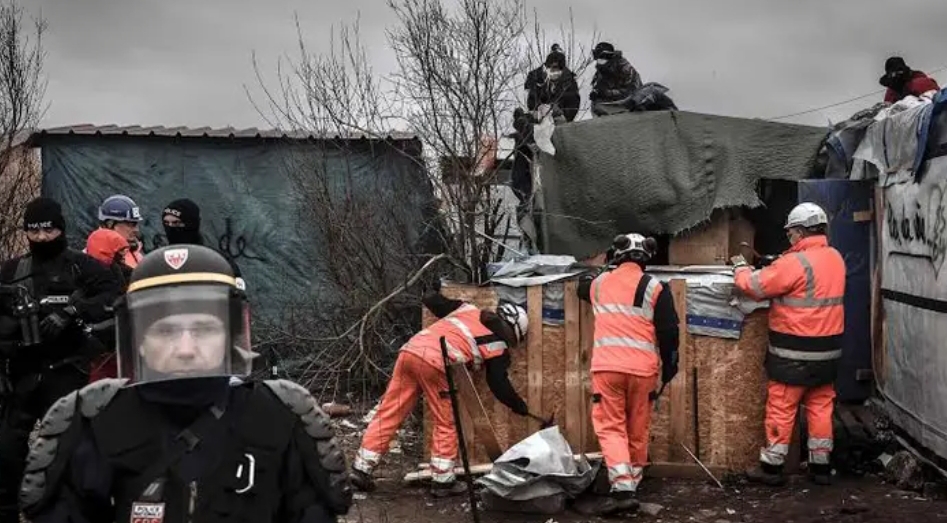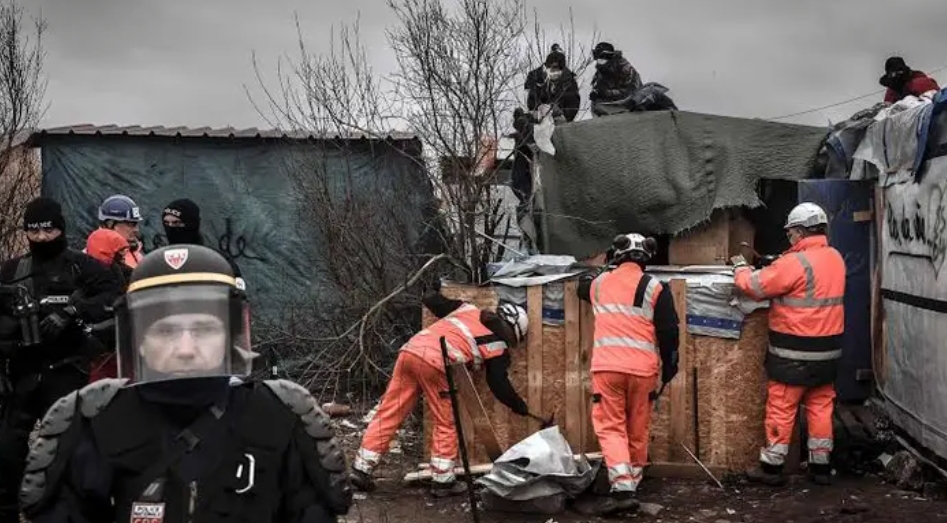
In a recurring pattern that underscores the complex challenges posed by the migration crisis in Europe, French police have once again evacuated a migrant camp in Calais. This latest evacuation marked the third time in the year 2023 that authorities have cleared out a camp in this coastal city of northern France, as reported by RFI France on Wednesday, October 11, 2023.

The camp, located at Turquerie in Calais, was home to approximately 700 migrants who were heading to the United Kingdom, primarily of Sudanese origin.
This operation was set in motion following a court decision that deemed it necessary due to the “very large number of migrants present” and reported disturbances within the camp.
Calais, situated just across the English Channel from the United Kingdom, has long been a focal point for migrants seeking to reach Britain. As such, it has become a flashpoint for various police operations as authorities grapple with the ongoing influx of migrants.
On the morning of Tuesday, October 10, 2023, over 300 police officers were mobilized to carry out the evacuation, under the oversight of Jacques Billant, the top official of the Pas-de-Calais region.
The decision to evacuate the camp was made following a court order, with Billant emphasizing that it was deemed necessary due to the large number of migrants and the “significant disturbances,” including reports of knife-related incidents.
As a result of the operation, more than 500 individuals from the camp agreed to be placed in temporary housing, as confirmed by the Calais prefect. Additionally, approximately 20 individuals were arrested during the evacuation.
The recurrent evacuations in Calais highlight the persistent and challenging issue of managing the influx of migrants in Europe.
The migrants in these camps are often driven by a variety of factors, including conflict, persecution, and economic hardship in their home countries, as well as the hope of finding better opportunities in the United Kingdom.
While these evacuations aim to address the immediate concerns related to overcrowded and sometimes unsafe living conditions in the camps, they underscore the need for comprehensive, long-term solutions to the migration crisis in Europe.
This includes addressing the root causes of migration, improving asylum processes, and fostering international cooperation to manage the flow of migrants more effectively.
The situation in Calais serves as a stark reminder that the migration challenge is not limited to one country or region but is a global issue that demands a coordinated response.
As countries and regions grapple with the complexities of migration, the focus should be on ensuring the safety and dignity of those seeking refuge, while also addressing the concerns of host communities and upholding the rule of law.




